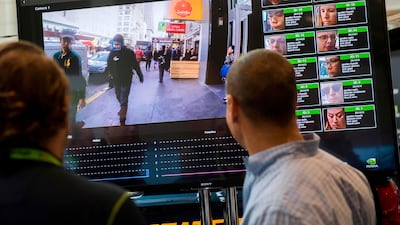There is a lot of enthusiasm about the prospect and potential for innovation in public services. From digital government, big data and blockchain to artificial intelligence, the internet of things and bitcoins, excitement is high. A series of incremental yet disruptive innovations are said to be about to take place in government that will unleash a revolution in the type of public services offered to citizens worldwide and the way that is done. Technological advances will allow governments to tackle stubborn challenges such as poverty, inequality, disease and the environment more efficiently and more effectively.
For example, digital IDs are said to make it possible to help undocumented individuals, refugees and others to access public services and allow them to engage in value exchange via a system that is guaranteed by its own architecture. Property transactions, commercial deals and even arbitration are all supposed to become more secure, instant and efficient as they take place over distributed blockchain-style ledgers. Citizens' behaviour and preferences as they drive, buy, read, eat or engage in any other activity will be captured in big data and analysed to produce and customise services and regulations that will help achieve greater societal goals. Facial recognition, satellite imagery, 3-D printing, augmented reality, drones and other technological advances all promise to revolutionise the way government works and the scope and scale of its services.
But, of course, not everyone is excited about all these technological promises. Sceptics are concerned that ubiquitous technology will blur the boundaries between public and private, especially that between the state and its citizens. They fear that regardless of the type of political and economic system in place, technology will not only make it easier to monitor and control individuals, but also allow the state and big corporations to know way too much about citizens, giving them an advantage in shaping their thinking and in nudging their choices. This, they argue, gives governments and big corporations too much leverage over citizens and society, effectively creating Orwellian societies.
_________________
Read more from Opinion
Why the education sector could learn a lot from Netflix
Trump in the White House: will the great disrupter unsettle America's checks and balances?
_________________
The fear of technology abuse is not new. In 1921, the Russian writer Yevgeny Zamyatin wrote We, a science fiction about a dystopian futuristic state where citizens have numbers rather than names, functions rather than emotions and all are part of one big techno-totalitarian state. In 1949, George Orwell published his famous dystopian novel 1984 about a society of mass surveillance, where citizens are monitored by Big Brother via telescreens. There have been fictional works about science and technology leading to frighteningly perfect worlds too, from HG Wells' A Modern Utopia to Aldous Huxley's Brave New World.
However, in today’s debate about innovation and government, what seems to go unnoticed is the potential role of technology in shielding, lessening and mitigating political turbulence and bad governance at the top. More precisely, with the “technologisation” of service-delivery aspects of government, public services are less prone to disruptions from the political side of government or from senior level of administration. This insight is becoming evident in the case studies we are undertaking at Insead, in partnership with EY, of the digitalisation of services and processes in various public agencies. While these are still ongoing, we notice one of the clear advantages of digitalisation in government is the stability it provides against changes on the top or in politics. As new leadership arrives, it finds a pervasive client-facing system in place that is difficult to interrupt and one that is too automated to manipulate. Technology, especially automation, is making it easier to bring accountability, transparency and predictability to public administration, arguably making it more immune to politics. This is not the same as to say it is immune to all problems. Some prominent examples of automation going wrong in Canada (Phoenix Pay System), Denmark (Skat) and the United States (the Obamacare website), show technology sometimes fails us as much as we fail it when it is not rolled out correctly.
_________________
Read more from Sami Mahroum
In our rapidly evolving world, is Dubai a city of the future?
The Arab intellectual is an endangered species
_________________
But this is not to obscure the fact that something very interesting is taking place in public administration around the world. In countries with weak political systems, particularly in developing countries which are plagued with inefficiencies, resource constraints, red tape and a lack of accountability, technology provides more hope than despair. From the use of renewables to create decentralised energy infrastructure, to the use of platforms to digitalise payments and access to public services, developing countries are able to leapfrog into new and leaner public service platforms. The effect of this is already becoming noticeable in the growing similarity of public services access and availability around the world, irrespective of type of government, current political events and level of economic development. From automated airport entry, paying for parking fees or applying for a business licence, government digital services tend to resemble each other and are often designed around more or less similar templates. And we expect these services to continue be available at the same rate and quality regardless of who oversees the agency behind it or the government of the city or country we are in.
The new configuration of public service delivery around new technology - often in partnership with a private-sector service provider - means that once set up and running successfully, an increasing number of services will become like utilities. They will perform to certain expected standards, largely automated and often apolitical.
Sami Mahroum is director of the innovation and policy initiative at Insead in Abu Dhabi


